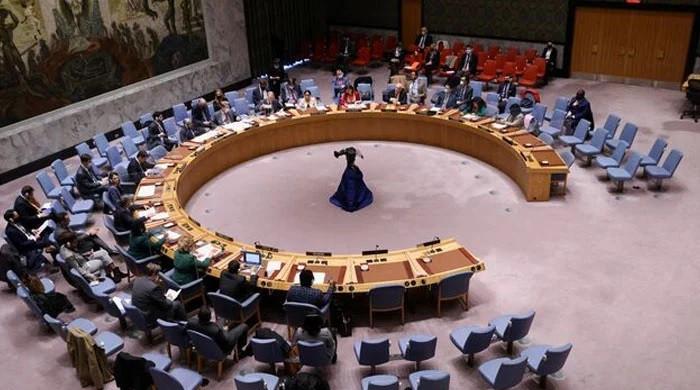Pakistan continues to face acute shortage of nurses: policy makers, academics
"Pakistan has one of the greatest shortages of trained nurses," says SAPM Faisal Sultan
May 11, 2021
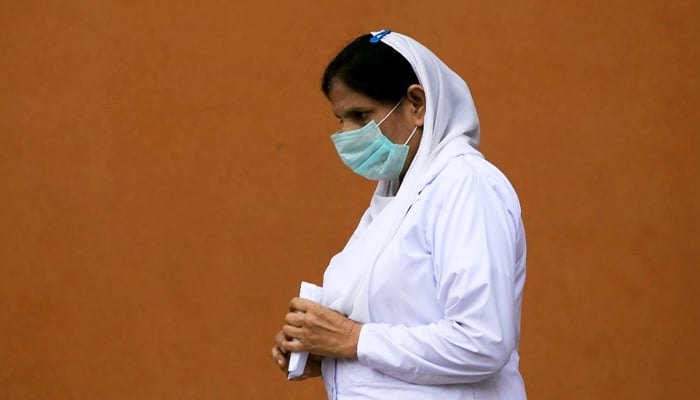
- AKU holds seminar to celebrate International Day of Nurses and Midwives.
- Sindh Chief Minister Murad Ali Shah notes demand for nurses increasing worldwide.
- Pakistan has one of the greatest shortages of trained, high-quality nurses, says SAPM Dr Faisal Sultan.
KARACHI: Pakistan’s nurses and midwives are playing a vital role on the frontlines of the third wave of COVID-19 despite the ongoing shortage of healthcare professionals in the country, policymakers and academics said Tuesday.
The comments of the policymakers and academics came during a seminar at the Aga Khan University Hospital, held to celebrate the International Day of Nurses and Midwives.
While recognising how nurses have gone above and beyond the call of duty to serve the public during the pandemic, Chief Minister Sindh Murad Ali Shah, the chief guest at the event, noted that the demand for nurses worldwide is increasing — creating incentives for nurses in Pakistan to move abroad.
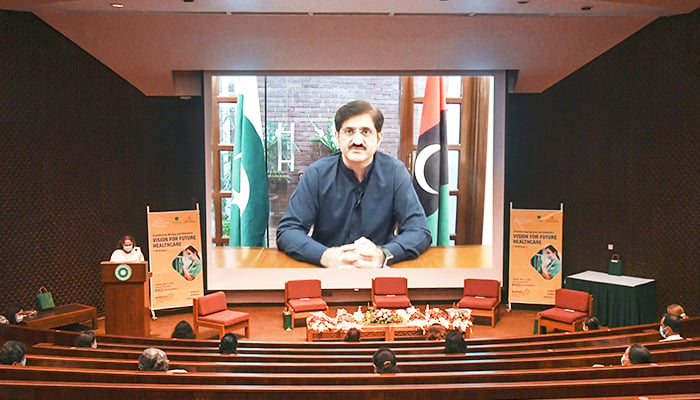
“We are mindful of the fact that due to the global shortage of nurses, the demand worldwide has increased which is giving our nurses the opportunity to migrate to high-income countries to improve their quality of life. This is definitely something we don’t want to happen as in Pakistan, there had already been a shortage of 1.3 million nurses before the pandemic," CM Shah said.
'Shortages of trained, high-quality nurses'
Special Assistant to the Prime Minister on Health Dr Faisal Sultan said: "Pakistan has one of the greatest shortages of trained, high-quality nurses.”
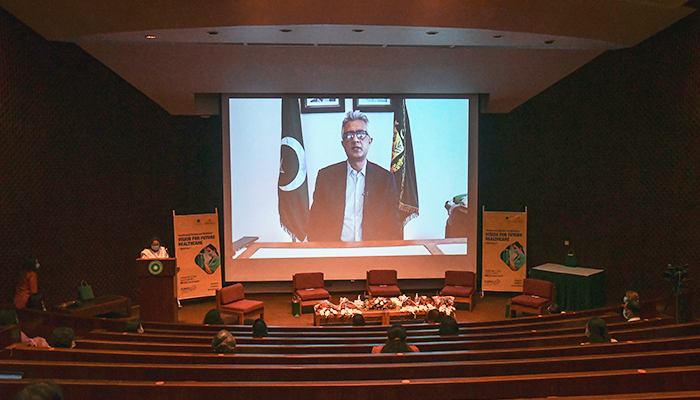
The SAPM noted that no healthcare system could deliver quality care without the input of trained, committed professionals in the nursing field.
Dr Sultan said the government’s national health task force has been working to expand the education and training of nurses to ensure that the country’s nursing workforce continues to grow.
In a recorded message, Health Minister Sindh Dr Azra Pechuho said one of the reasons behind Pakistan’s shortage of nurses is that too few women are seeking admission to the profession.
Speakers at the event also noted that limited career pathways for nurses, inadequate compensation and respect, and unsafe work environments were some of the factors behind people leaving the profession or choosing to practice abroad.
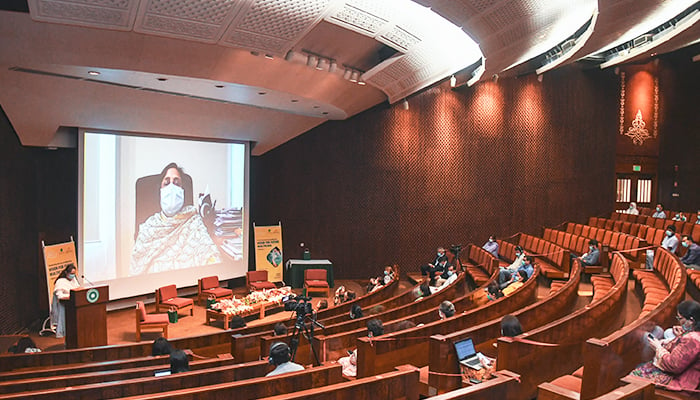
They added that Pakistan is one of the five countries facing the largest deficits of nurses with the World Health Organisation also calling on the country to take steps to double its nursing workforce.
'No days off'
“Nurses have grown used to double shifts, no days off, and living at hospitals during the pandemic to keep the public safe,” AKU’s School of Nursing and Midwifery Dean Professor Rozina Karmaliani said.
“They are also working at vaccination centres, hosting capacity building drives for their colleagues, volunteering at field isolation centres, as well as managing tele-clinics, hotlines and home-health initiatives. Despite being stretched, they are striving to do their best," she said.
Commenting on the steps needed to retain and encourage nurses to stay in the workforce, experts highlighted the need to promote Advanced Practice Nursing, APN, qualifications that enhance the skills of nurses and enable them to widen their scope of practice.
This would involve the granting of licenses to nurses and midwives with specialist qualifications enabling them to run their own clinics.
They added that if midwives could have run their own clinics during the pandemic this would have eliminated the need for pregnant women to risk contracting COVID-19 by leaving their home to go to the hospital. Similarly, APNs could run tele-clinics for vulnerable populations, such as the elderly, making it more convenient for patients to access healthcare.
“Empowering nurses and midwives to take the lead in patient care would expand the availability of affordable care,” said Professor Rafat Jan, associate dean at AKU’s School of Nursing and Midwifery.
'No stone unturned to support the healthcare system'
“It would also boost timely access to treatment that would prevent the onset of complications which place a significant burden on tertiary care hospitals .”
They highlighted the need to convert nursing schools into colleges and to encourage faculty development initiatives so that academic institutions would have enough teachers.
They also called on the government to invest in online learning to improve access to learning during the pandemic so that graduates could complete their education on time and join the workforce immediately.
In addition to online teaching and the use of digital platforms, introducing innovations in simulation can also help produce the best nursing graduates for the market, speakers added.
“Nurses have left no stone unturned to support the healthcare system,” Khairunisa Khan, deputy director of nursing in Sindh, said.
“I salute their persistence, dedication and hard work which they have exhibited especially in the ongoing battle against COVID-19.”
Speakers at the event also recognised the achievement of milestones by their colleagues during the year such as Pakistan awarding its first nursing doctorate, and 8 nurses from the country being named among the world’s 100 outstanding nurses.
Other speakers at the event included Aga Khan University Hospital, AKUH, CEO Dr Shahid Shafi, AKUH Chief Nursing Officer Salma Jaffer and AKU Medical College Dean Dr Adil Haider.





